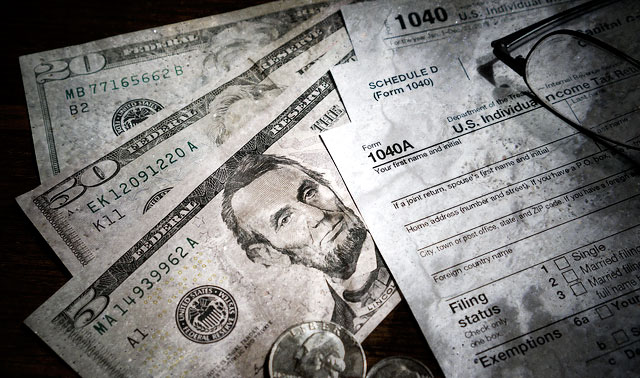
We seem poised for a great debate over tax policy in the next few months. Donald Trump and the Republican Congress are likely to push for various plans to reduce taxes on the wealthy. Progressives, and hopefully most of the Democrats, will be fighting back. While concerns over deficits are hugely exaggerated, at the end of the day we will need some revenue, and it makes much more sense that it come from people like Donald Trump and his cabinet members than ordinary workers.
While the tax debate is undoubtedly important, it is less important than the rules of the game that determine before-tax income distribution. This is an arena in which the right has been active for decades, and progressives have been largely absent.
In a wide variety of policy areas, the right has pushed policies that have the predicted and actual effect of redistributing income upward. The most obvious and unambiguous one is its efforts to weaken unions. They have pushed measures such as bans on contracts requiring that all who benefit from a union share in the cost of maintaining the union (a.k.a. “right to work”) in both the public and private sector. This is leads to fewer and weaker unions and lower pay.
They also have pushed deregulation in sectors where workers once enjoyed reasonably good wages and benefits, such as trucking, telecommunications and air travel. In each case the result has been downward pressure on pay and the weakening of unions.
If progressives want to score real and lasting victories against the right, it can’t just focus on taxes, like the right it has to contest the rules of the game. Fortunately, there are lots of rules that can be contested to our advantage.
The first one is right in front of our faces. The Federal Reserve Board is on a course where it is raising interest rates every few months. The purpose of raising interest rates is to slow the economy and keep people from getting jobs.
Not only does this deprive workers of employment (disproportionately Black and Latino workers), but it also weakens workers’ bargaining power. If workers are going to get back the income shares they lost in the Great Recession, the Fed has to stop raising rates and allow the labor market to further tighten.
Another area in which the rules have been structured to hand huge amounts of money to the rich is the strengthening and lengthening of patent and copyright protections. This is an especially large problem in the case of prescription drugs. We will spend more than $440 billion this year on drugs that would cost less than $80 billion in a free market. The $360 billion gap between the protected price and the free market price would be enough to raise the pay of the bottom half of the labor force by more than 20 percent.
The obvious remedy is to get prices closer to their free market level and to develop alternative mechanisms for finance research. A recent bill introduced in the Senate by Sherrod Brown and 16 co-sponsors is a big step in this direction with a provision for public funding of clinical trials.
The financial sector is another place where rewriting the rules would have a huge impact on the distribution of income. This is where many of the richest people in the country get their money. A modest financial transactions tax, comparable to the sales tax that other sectors pay, could hugely downsize the sector. Similarly, rules for ending the tax avoidance industry, along with requirements for increased transparency in pension fund dealings, would mean a lot less money for finance billionaires and more for the rest of us.
The right has been playing hardball for decades, looking for areas in which rules can be rewritten to redistribute money upwards. Often this means delving into obscure topics that attract little public attention, like the length and scope of patent protections. Their efforts have been incredibly successful, which is why we have seen the share of income going to the richest 1 percent more than double over the last four decades.
If this upward redistribution is to be reversed then it will be necessary for the left to get into the same policy writing weeds. We can’t afford to let the right continue to redistribute before-tax income upward with the hope that we can get a few more dollars in taxes from them to partially reverse the process.
Join us in defending the truth before it’s too late
The future of independent journalism is uncertain, and the consequences of losing it are too grave to ignore. To ensure Truthout remains safe, strong, and free, we need to raise $47,000 in the next 8 days. Every dollar raised goes directly toward the costs of producing news you can trust.
Please give what you can — because by supporting us with a tax-deductible donation, you’re not just preserving a source of news, you’re helping to safeguard what’s left of our democracy.